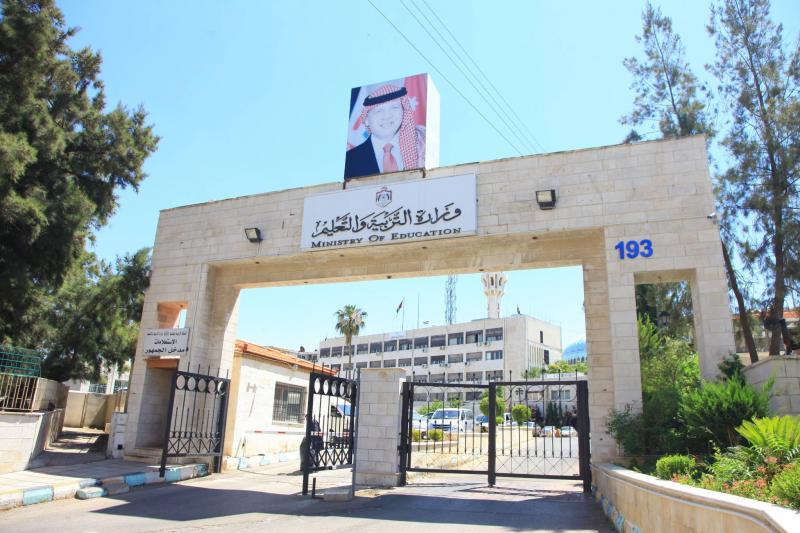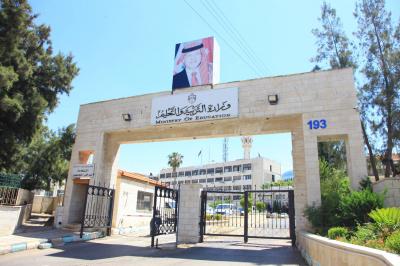In the ground floor of a public school west of the capital, Amman, Mamoun Mansour (49 years old) stands in a line for parents, holding the documents necessary to transfer his three children from their private school after their fees increased by about ten percent. Mansour, who is the head of a family of six, sweats due to the lack of air conditioning in the classroom designated for receiving transfer requests. He says, "Even though I am very worried about their educational level and their psychological state away from their friends, the only solution for me is to transfer them to public schools in our neighborhood. I can no longer afford to pay private school fees."
**Reasons for the Transfers**
Rising living costs on one hand and inflated demands from private schools on the other are the reasons Mansour cites for transferring his children. He emphasizes that "it’s not just the tuition fees that have increased, but also the costs of books, stationery, uniforms, transportation fees, and other ancillary expenses like activities that teachers require almost every week." Mansour, an employee at a private chemical fertilizer company, indicates that he is nearing retirement, and private education is no longer a priority he can afford for all his children. He is satisfied with having provided them with private education in their early years, hoping they can complete the remaining years with public schooling.
The government anticipates that the inflation rate in Jordan will reach 3.8 percent this year, compared to 2.5 percent in the previous year. The average fees for private schools in Jordan range between $2,700 and $7,000 per semester, depending on the educational stage and school, compared to nominal fees in public schools.
**Impact of the Pandemic**
For her part, ايمان مظهر (36 years old) states that after being laid off during the COVID-19 pandemic, she could no longer assist her husband in paying the school fees for their two children in private school. She mentions that her husband’s salary alone is insufficient to cover the costs of their son and daughter’s private education, forcing them to transfer them to a public school that they’ve heard is good, despite its distance from their home.
She adds, "Despite the higher quality of private education compared to public education, along with the relatively safe environment surrounding the child, the only option we had was to transfer the children, hoping that I can return to work with a good salary to send them back to their school." She points out that the high cost of living in Jordan and other priorities such as mortgage payments, car fuel, family food, and clothing have prompted her and her husband to reconsider continuing private education.
**Pressure on Public Schools**
Ahmed Al-Masa’fa, the spokesperson for the Ministry of Education, explains to "Reuters" that during the COVID-19 pandemic, 230,000 students moved from private education to public schools, compared to an average of about 25,000 students annually previously, which required the establishment of waiting lists. He notes that while this puts pressure on some schools due to capacity limitations, "public schools do not close their doors to any student wishing to enroll."
The Ministry of Education operates 4,062 public schools across the kingdom, with class sizes ranging from 20 to 50 students depending on space. Al-Masa’fa also mentions issues of overcrowding and pressure on numbers in certain schools, especially in some provinces, adding that the solution lies in renting old buildings and converting them into schools or constructing new buildings, or resorting to a double shift system.
The ministry is attempting to compensate for the shortfall in the number of teachers through additional education. He indicates that the number of teachers in the kingdom reaches 116,000.
Qasem Al-Hamouri, an economics professor at Yarmouk University, confirms that the trend of students transitioning from private to public schools has become very clear over the past four years. He states that "the condition of Jordanian families is deteriorating in terms of purchasing power, and families are slipping from the middle class to poverty."
Al-Hamouri points out that the changes families are experiencing in terms of education levels or healthcare are indicative of the rising living costs in the kingdom alongside declining economic growth rates.
Munther Al-Sourani, the head of the Private Schools Owners Association, affirms to Reuters that supply and demand control the prices of private school fees, and the competition among nearly 3,400 private schools is fierce to attract students. He believes that the financial situations of families have changed, forcing parents to leave private education in favor of public schooling.




